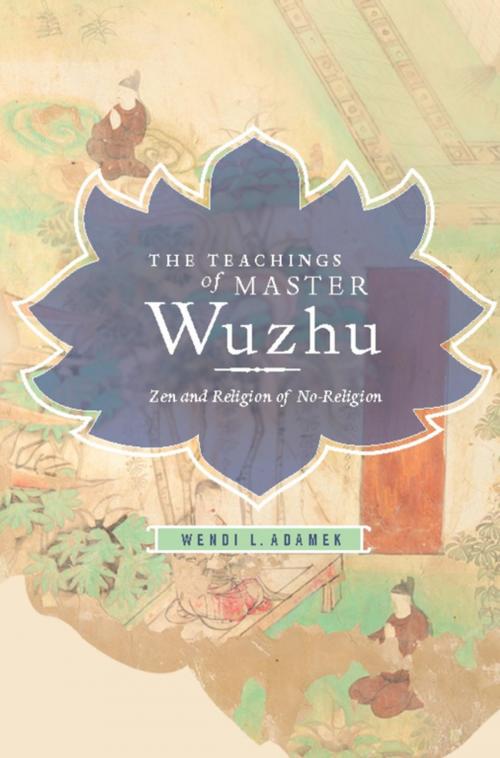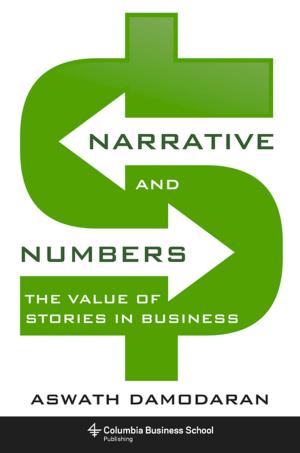The Teachings of Master Wuzhu
Zen and Religion of No-Religion
Fiction & Literature, Literary Theory & Criticism, Asian, Nonfiction, Religion & Spirituality, Eastern Religions, Buddhism| Author: | Wendi Adamek | ISBN: | 9780231527927 |
| Publisher: | Columbia University Press | Publication: | September 20, 2011 |
| Imprint: | Columbia University Press | Language: | English |
| Author: | Wendi Adamek |
| ISBN: | 9780231527927 |
| Publisher: | Columbia University Press |
| Publication: | September 20, 2011 |
| Imprint: | Columbia University Press |
| Language: | English |
The Record of the Dharma-Jewel Through the Generations (Lidai fabao ji) is a little-known Chan/Zen Buddhist text of the eighth century, rediscovered in 1900 at the Silk Road oasis of Dunhuang. The only remaining artifact of the Bao Tang Chan school of Sichuan, the text provides a fascinating sectarian history of Chinese Buddhism intended to showcase the iconoclastic teachings of Bao Tang founder Chan Master Wuzhu (714–774). Wendi Adamek not only brings Master Wuzhu's experimental community to life but also situates his paradigm-shifting teachings within the history of Buddhist thought. Having published the first translation of the Lidai fabao ji in a Western language, she revises and presents it here for wide readership.
Written by disciples of Master Wuzhu, the Lidai fabao ji is one of the earliest attempts to implement a "religion of no-religion," doing away with ritual and devotionalism in favor of "formless practice." Master Wuzhu also challenged the distinctions between lay and ordained worshippers and male and female practitioners. The Lidai fabao ji captures his radical teachings through his reinterpretation of the Chinese practices of merit, repentance, precepts, and Dharma transmission. These aspects of traditional Buddhism continue to be topics of debate in contemporary practice groups, making the Lidai fabao ji a vital document of the struggles, compromises, and insights of an earlier era. Adamek's volume opens with a vivid introduction animating Master Wuzhu's cultural environment and comparing his teachings to other Buddhist and historical sources.
The Record of the Dharma-Jewel Through the Generations (Lidai fabao ji) is a little-known Chan/Zen Buddhist text of the eighth century, rediscovered in 1900 at the Silk Road oasis of Dunhuang. The only remaining artifact of the Bao Tang Chan school of Sichuan, the text provides a fascinating sectarian history of Chinese Buddhism intended to showcase the iconoclastic teachings of Bao Tang founder Chan Master Wuzhu (714–774). Wendi Adamek not only brings Master Wuzhu's experimental community to life but also situates his paradigm-shifting teachings within the history of Buddhist thought. Having published the first translation of the Lidai fabao ji in a Western language, she revises and presents it here for wide readership.
Written by disciples of Master Wuzhu, the Lidai fabao ji is one of the earliest attempts to implement a "religion of no-religion," doing away with ritual and devotionalism in favor of "formless practice." Master Wuzhu also challenged the distinctions between lay and ordained worshippers and male and female practitioners. The Lidai fabao ji captures his radical teachings through his reinterpretation of the Chinese practices of merit, repentance, precepts, and Dharma transmission. These aspects of traditional Buddhism continue to be topics of debate in contemporary practice groups, making the Lidai fabao ji a vital document of the struggles, compromises, and insights of an earlier era. Adamek's volume opens with a vivid introduction animating Master Wuzhu's cultural environment and comparing his teachings to other Buddhist and historical sources.















